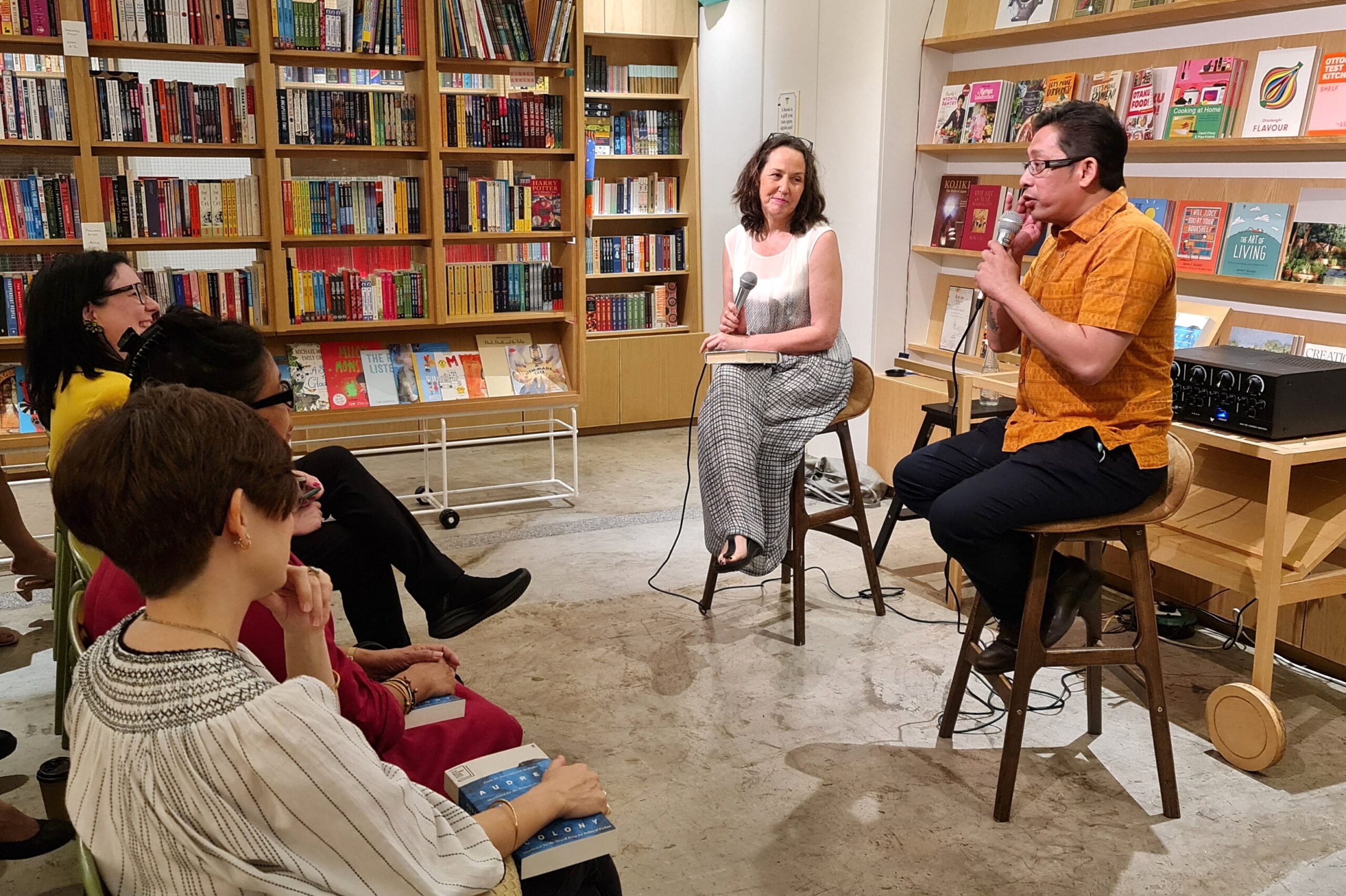
by Fong Min Hun
During an author event here at Lit Books on Nov 2, 2022, Audrey Magee, author of The Colony and former journalist, said that while writing her novel, she had to keep the reporter within in check. Notwithstanding the self-professed demarcation of roles, The Colony is a fine example of a key journalism precept, namely, show, don’t tell. The result is an achingly beautiful novel written with a fluency and sparseness of prose that draws all emotion out from the page to inject them fully within the soul of the reader.
Such is the prowess of Magee’s Booker-longlisted novel that it makes absolute sense as to why it didn’t win the prize: it simply reads too well. Also working against it Booker prize-wise is that rather than it being a simple story masked in complexity, it is a complex story that masks itself in simplicity. The Colony recalls to mind that other quietly powerful novel, John Williams’ rediscovered Stoner, which similarly traverses the themes of class, ambition and betrayal within similarly narrow confines. Indeed, Julian Barnes’ verdict on Stoner can and ought to be restated in respect to The Colony: “the prose was clean and quiet; and the tone a little wry”.
Set in a fictitious remote island in the Atlantic at the height of Irish sectarian violence in 1979, The Colony centres around the arrival of two neo-colonials, an Englishman and a Frenchman — an artist and a linguist, respectively — to an unnamed island. Entitled and oblivious, both arrive with the aim of seeking out and capturing for themselves an authentic Irish experience, to the amusement and bemusement of the islanders.
Despite initial reservations about the intentions of Mr Lloyd, the Englishman, some of the islanders begin to warm to him, particularly James, an island boy with a preternatural gift for painting. Recognising James’ talent and in appreciation of his willingness to run around as his dogsbody, Lloyd promises to take James home with him to London and showcase his precocious, if naive, talent at his wife’s gallery. In the meantime, Lloyd is also painting James’ mother, Mairead, in the style of Gauguin, despite the disapproval of the remaining islanders.
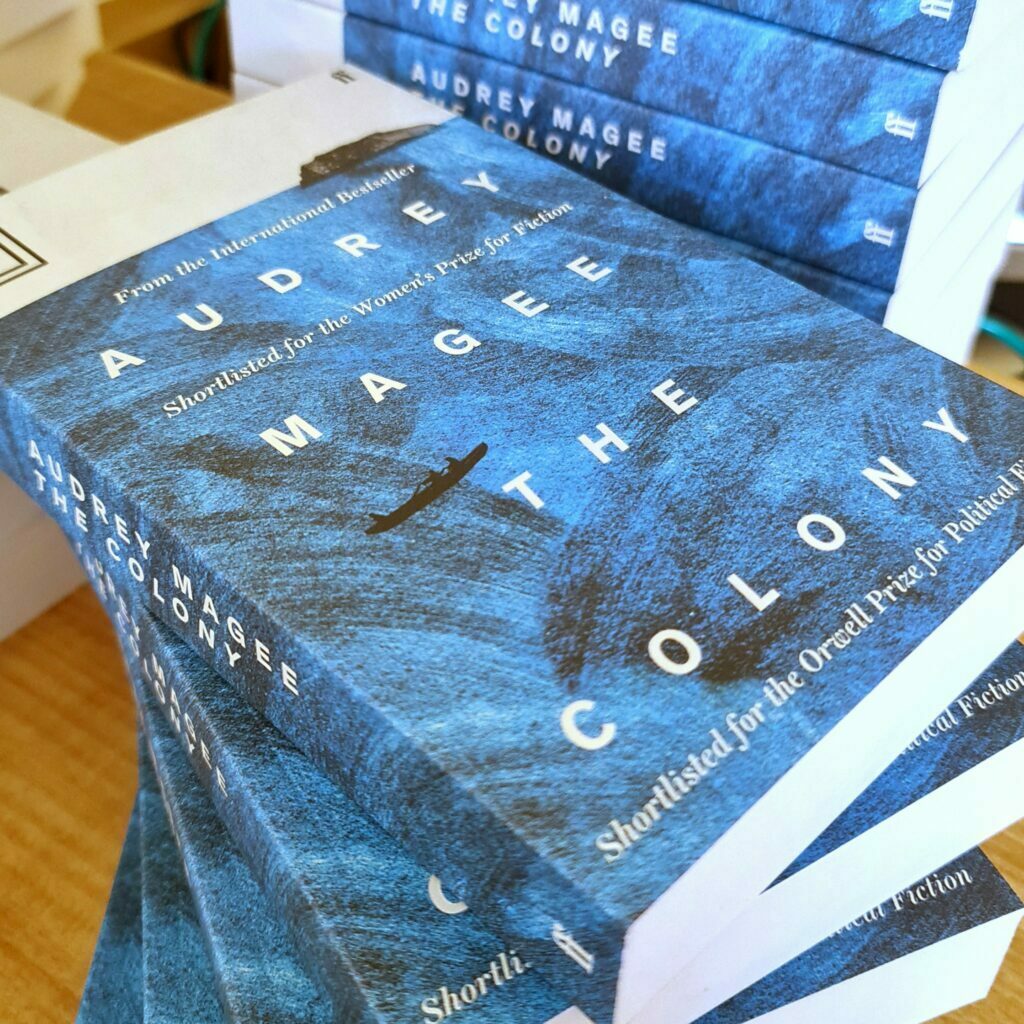
The Frenchman, Jean-Pierre Masson, has arrived on the island to complete his longitudinal research on the Gaelic language. He has been coming to the island annually for five years to document and capture changes in the language on the island, which, thanks to the remoteness of the location, was relatively free from outside influence. Viewing himself as a protector of the authenticity and survival of the language, Masson finds favour with the matriarch of the family who fervently insists on keeping with the old ways. Masson expects to be lionised for his work; the islanders know better.
At its core, Magee’s novel is a restatement of the violence of colonisation, and a revelation of the play of power within a complex weave. It is when this dynamic is normalised — when the one who wields power and the one over which power is wielded forget their place — that the nuanced wretchedness of the colonial relationship is revealed. Indeed, this is stated with some force in The Colony where each chapter is divided by a short report on some incident of violence that happened in Northern Ireland in 1979, culminating in the assassination of Lord Mountbatten on August 27.
No such ruckus disrupts the quietude of the main story, save for a rather menacing, albeit ambiguous, ending for some of the islanders. The Colony ends the way that Irish novels must: a melancholic return to the status quo with everyone just that little bit more sad.
The author session we had with Magee and Pusaka founder Eddin Khoo was thanks to the support of the Embassy of Ireland in Malaysia. Below are edited excerpts from the hour-long conversation.
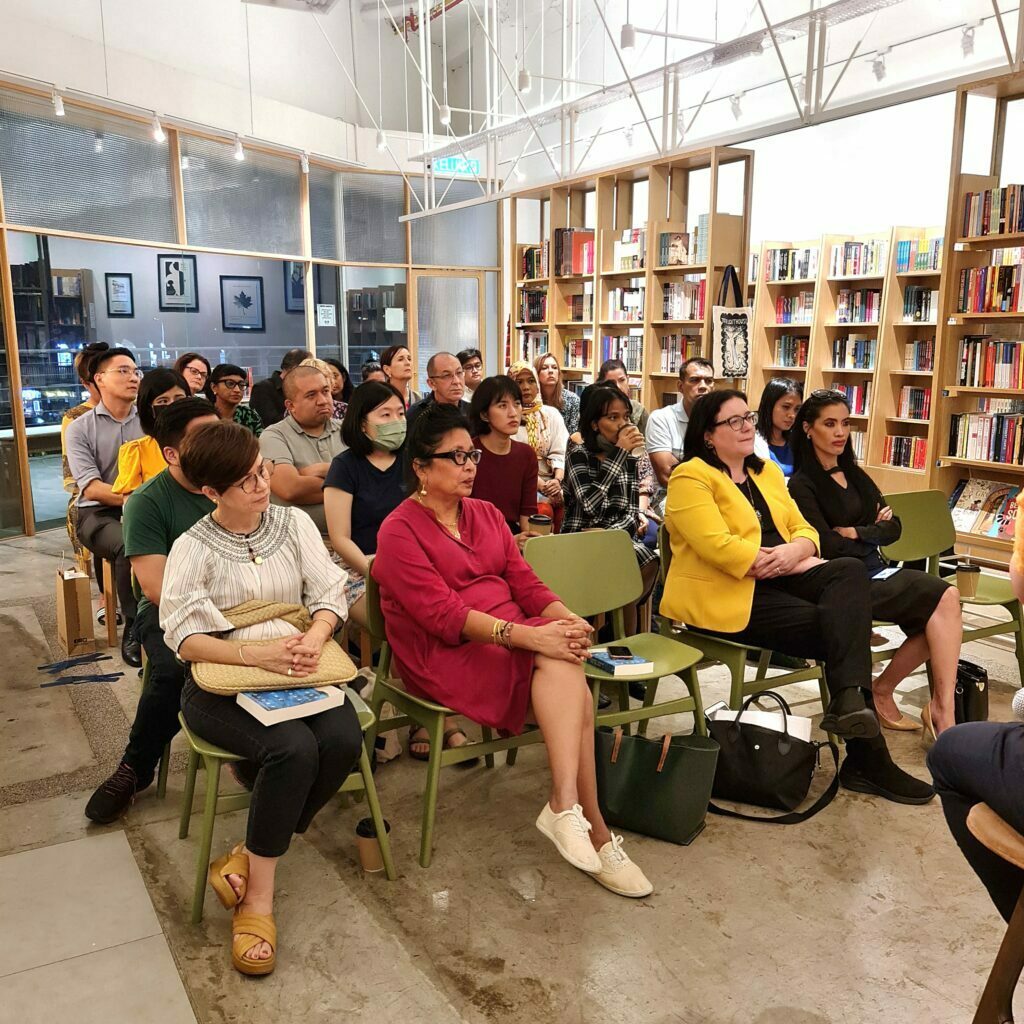
On achieving a sense of distance in her writing:
I think I grew up in an Ireland that was kind of almost distant from itself. The core of this novel is the violence — the violence that was the backdrop to my childhood, to the childhood of the people of my generation. And it was obviously distant from me as I was living in the south, but the violence was up in Northern Ireland. And most of the time you lived your life, but sometimes it cut into your life and it became very difficult to absorb.
I think you naturally created a distance from your identity to protect yourself from the violence. I say this because as a child, your identity was so defined by what you thought of the violence. For anybody growing up in a violent situation, whether it’s a violent marriage or a backdrop of violence, they can become quite distant as a way of self-preservation. I think a lot of us became quite distant from our heritage and our sense of Irishness — by that I mean our relationship with the language, our relationship with the flag because it was so politicised. Everything about our identity was politicised. So our flag is green, white and orange, which embodies the Catholics, Protestants with the neutral white between us. That was deemed to be an appropriate foundation of the state — and it was. But when the violence started again in the late 1960s… most of us just distanced ourselves.
I became very interested in otherness, and I became very interested in France and Germany. It was an easier space than Ireland. And then I continued that passion by going into journalism; it’s not your story, it’s somebody else’s story. So that kind of life as a viewer became quite a natural space for me, to stand outside of things. That’s a very valid space as a writer.
That fed into the titles. My first novel is called The Undertaking. It’s the Second World War from the perspective of the ordinary German — again, standing back to analyse. The Colony is obviously about colonisation, what it is to be colonised, what it is to be the coloniser. But I deliberately went with the definite article and a noun. I suppose drawing to a large degree on Camus and that whole L’Étranger/La Peste, that sense of creating an environment from which you can stand back to then explore. So it’s a distance to create an exploration because we assume we know what happened in Nazi Germany. We assume we know what happened in Ireland, what happens when you’re colonised, what happens in colonisation. But I’m much more interested in the latencies, in the things that are hidden from one generation to the next. Or the things that are passed on from one generation to the next by parents, grandparents, schools, institutions, politicians, society in general that we don’t even understand we’re inheriting and that we’re still repeating. And to do that, you need a distance. […]
But I can create a space for us all to think about what we know, what we’ve inherited, what we don’t know, what maybe we should think about. […] I wanted to understand the implications of that for all of us. We go on because we’re always focused on the future, because we have to be. We have to focus on the next generation. But sometimes to bring the next generation to the right place, you have to go back a bit to go forward. And that’s the space I’m trying to create.
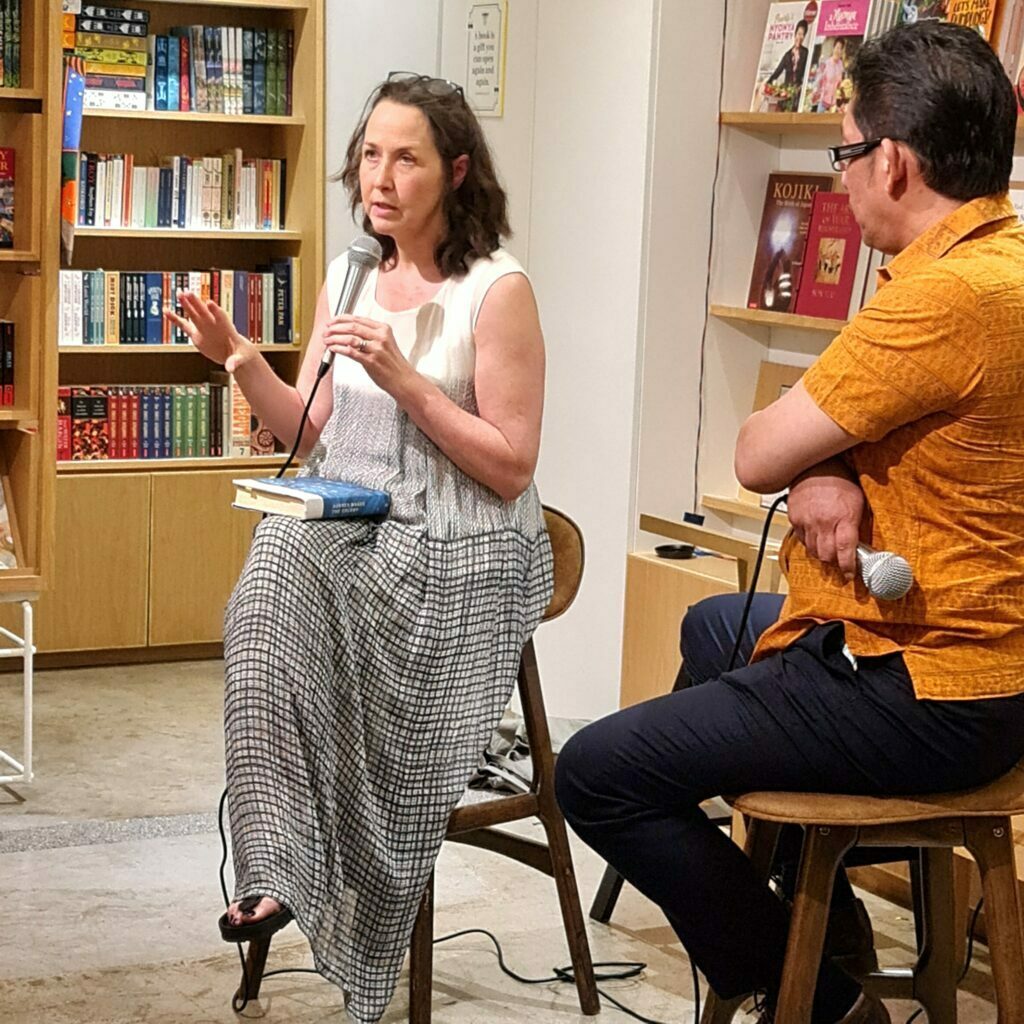
On the passage from journalism to writing her first novel:
I really had to — and I kid you not — go on a detox programme. I had to unlearn everything I had learnt about writing and create a freedom of space for something to happen. When you’re in journalism it’s always very preordained — obviously much more so in news writing than in feature writing and I did both — but also to no longer be certain. I had always been involved in otherness because that was exciting. Journalism is the epitome of other. But sitting with [the man who’s family was killed] the most precious thing we can hope for is an ordinary life. So I became compelled to try to create that ordinariness, and what was the impact. I wrote my first novel, which is what is the impact of fascism on the ordinary person. and then I was halfway through The Colony when I realised I was actually writing a triptych of power and the ordinary person. So we have fascism and the ordinary person, [The Colony] is colonisation and the ordinary person. There is a third novel, it’s got “the” in the title and that’s all I can tell you.
It was quite a process. I had to go back to the writing I was writing before I ever went into journalism. I was a ferocious letter writer, I had dabbled in short stories and plays but then buried them thinking I’ll never be a writer. You’re also dealing with the legacy of Irish writing. It’s hard to underestimate the legacy of four Noble Prize winners. Where do you begin? So to even put yourself forward and use the word writer was such a huge step for me. I couldn’t do it; I couldn’t say I’m a writer. In journalism I was never a writer; I was a journalist who wrote. It’s just such a precious word in Ireland. Writer is a very precious space, and I revered that space. Therefore, to enter it, I had to leave journalism behind me.
On how European literature shaped her fiction writing:
I was 16 when I met French writer Marguerite Duras for the first time. I had a wonderful French teacher in school who is my friend. She decided to do Moderato Cantabile with us which is one of Duras’ very sparsely written books. It’s a beautiful book, not a lot happens and yet a ton happens. I had been reading as part of my English curriculum all the Dickens and the Jane Austens and they’re all grand, lovely, great. But there was no space for me as a reader. I was always being told what to think, what to feel. I found that a bit boring. And then I met Duras and I was like, ‘Oh my god’. This is so radical for me because she created a space for me where I could engage; I could make my own decisions and I could analyse things for myself. She treated me as somebody who had thoughts and that was utterly radical. [Albert] Camus was huge because of his integration of narrative, politics, philosophy and sociology all into a novel and I thought that was thrilling. There was obviously Beckett, Bertolt Brecht, Heinrich Böll, Thomas Mann — the list is long and wonderful.
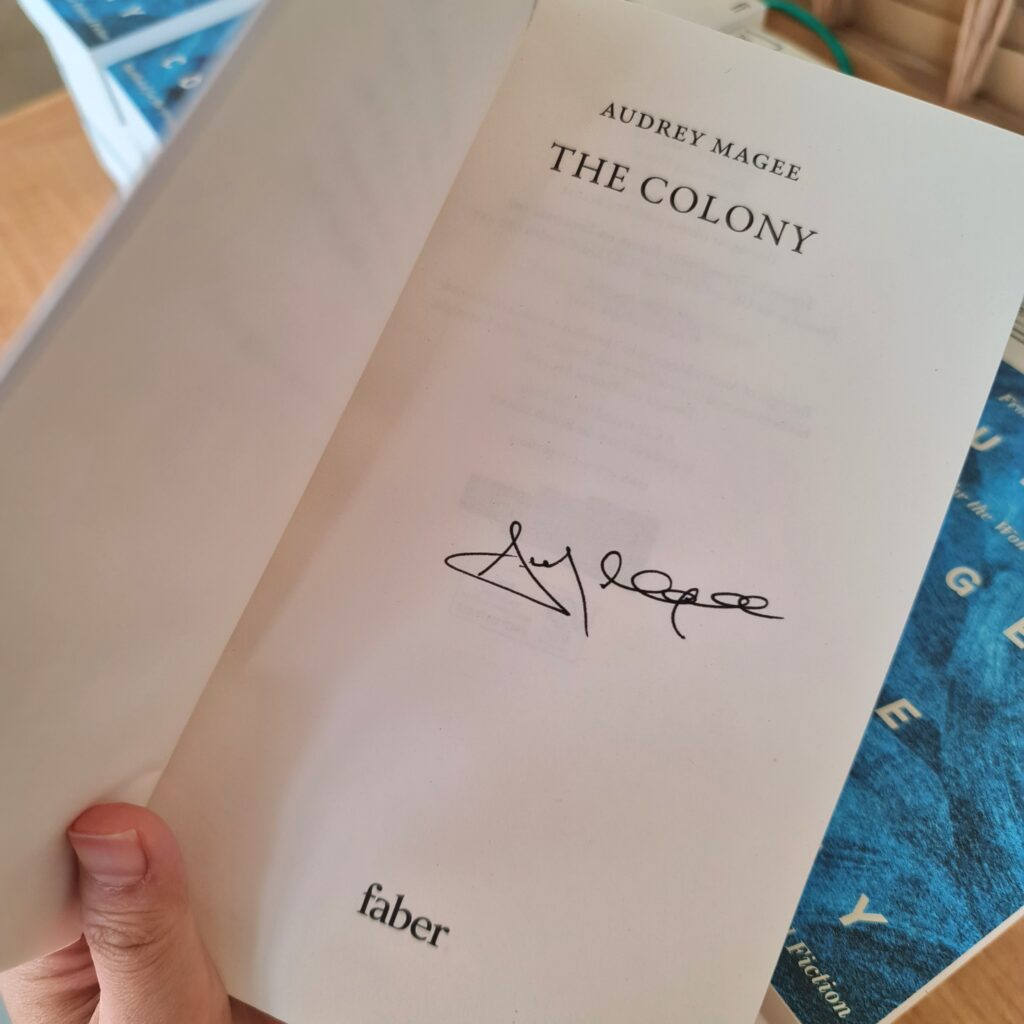
I had two amazing departments in University College Dublin (UCD). In 1980s Ireland we were doing French feminism while there were rows raging about divorce, abortion, homosexuality — all these things were really introduced by the church and anybody who stepped out of line was in trouble. I was on the fourth floor of UCD immersed in French feminism, French film, French linguistics, French language, German philosophy. I mean it was the most incredible space of otherness and it absolutely fed into me. But I think it fed into me in a very interesting way as well because you know you might be reading Goethe in German or German in the Middle Ages. And of course I didn’t understand a thing. So you learnt how to grasp onto a tiny phrase that gave you an understanding. When you read in a foreign language, you learn how much you can actually say with very little, that you can cut out tracks and tracks of description and put it into two words and you still pass your exams.
That really fed into understanding the impact of just two words, or three words or a phrase and how much that can carry, and how little you need to carry a whole scene.
Signed copies of The Colony are available to purchase in-store and online. We also have Magee’s first novel, The Undertaking.
